Top 10 Nobel Prize Laureates in Physics
The Top Ten
1 Albert Einstein
 Albert Einstein, awarded the Nobel Prize in Physics in 1921, is renowned for his theory of relativity and the famous equation E=mc² that describes the equivalence of mass and energy. His contributions laid the foundational principles for much of modern physics.
Albert Einstein, awarded the Nobel Prize in Physics in 1921, is renowned for his theory of relativity and the famous equation E=mc² that describes the equivalence of mass and energy. His contributions laid the foundational principles for much of modern physics.
 Albert Einstein, awarded the Nobel Prize in Physics in 1921, is renowned for his theory of relativity and the famous equation E=mc² that describes the equivalence of mass and energy. His contributions laid the foundational principles for much of modern physics.
Albert Einstein, awarded the Nobel Prize in Physics in 1921, is renowned for his theory of relativity and the famous equation E=mc² that describes the equivalence of mass and energy. His contributions laid the foundational principles for much of modern physics.
2 Niels Bohr
 Niels Bohr received the Nobel Prize in Physics in 1922 for his groundbreaking work on the structure of atoms and quantum mechanics. He introduced the Bohr model of the atom, explaining electrons' orbits around the nucleus and the quantization of energy levels.
Niels Bohr received the Nobel Prize in Physics in 1922 for his groundbreaking work on the structure of atoms and quantum mechanics. He introduced the Bohr model of the atom, explaining electrons' orbits around the nucleus and the quantization of energy levels.
 Niels Bohr received the Nobel Prize in Physics in 1922 for his groundbreaking work on the structure of atoms and quantum mechanics. He introduced the Bohr model of the atom, explaining electrons' orbits around the nucleus and the quantization of energy levels.
Niels Bohr received the Nobel Prize in Physics in 1922 for his groundbreaking work on the structure of atoms and quantum mechanics. He introduced the Bohr model of the atom, explaining electrons' orbits around the nucleus and the quantization of energy levels.
3 Marie Curie
 Marie Curie was honored with the Nobel Prize in Physics in 1903, alongside her husband Pierre Curie and Henri Becquerel, for their joint research on radiation phenomena. She was further awarded the Nobel Prize in Chemistry in 1911, making her the first person to win Nobel Prizes in two different sciences, for her discoveries in radioactivity.
Marie Curie was honored with the Nobel Prize in Physics in 1903, alongside her husband Pierre Curie and Henri Becquerel, for their joint research on radiation phenomena. She was further awarded the Nobel Prize in Chemistry in 1911, making her the first person to win Nobel Prizes in two different sciences, for her discoveries in radioactivity.
 Marie Curie was honored with the Nobel Prize in Physics in 1903, alongside her husband Pierre Curie and Henri Becquerel, for their joint research on radiation phenomena. She was further awarded the Nobel Prize in Chemistry in 1911, making her the first person to win Nobel Prizes in two different sciences, for her discoveries in radioactivity.
Marie Curie was honored with the Nobel Prize in Physics in 1903, alongside her husband Pierre Curie and Henri Becquerel, for their joint research on radiation phenomena. She was further awarded the Nobel Prize in Chemistry in 1911, making her the first person to win Nobel Prizes in two different sciences, for her discoveries in radioactivity.
4 Pierre Curie
 Pierre Curie, along with Marie Curie and Henri Becquerel, was awarded the Nobel Prize in Physics in 1903 for their collective research on the radiation phenomena. His studies on piezoelectric effects and magnetism significantly contributed to the development of fundamental theories in physics.
Pierre Curie, along with Marie Curie and Henri Becquerel, was awarded the Nobel Prize in Physics in 1903 for their collective research on the radiation phenomena. His studies on piezoelectric effects and magnetism significantly contributed to the development of fundamental theories in physics.
 Pierre Curie, along with Marie Curie and Henri Becquerel, was awarded the Nobel Prize in Physics in 1903 for their collective research on the radiation phenomena. His studies on piezoelectric effects and magnetism significantly contributed to the development of fundamental theories in physics.
Pierre Curie, along with Marie Curie and Henri Becquerel, was awarded the Nobel Prize in Physics in 1903 for their collective research on the radiation phenomena. His studies on piezoelectric effects and magnetism significantly contributed to the development of fundamental theories in physics.
5 Luis Walter Alvarez
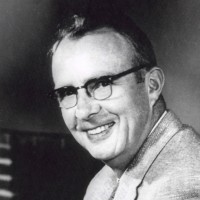 Luis Walter Alvarez was awarded the Nobel Prize in Physics in 1968 for his decisive contributions to elementary particle physics, notably the discovery of a large number of resonance states, made possible through his development of the hydrogen bubble chamber technique. His wide-ranging work also explored areas such as radar and nuclear energy.
Luis Walter Alvarez was awarded the Nobel Prize in Physics in 1968 for his decisive contributions to elementary particle physics, notably the discovery of a large number of resonance states, made possible through his development of the hydrogen bubble chamber technique. His wide-ranging work also explored areas such as radar and nuclear energy.
 Luis Walter Alvarez was awarded the Nobel Prize in Physics in 1968 for his decisive contributions to elementary particle physics, notably the discovery of a large number of resonance states, made possible through his development of the hydrogen bubble chamber technique. His wide-ranging work also explored areas such as radar and nuclear energy.
Luis Walter Alvarez was awarded the Nobel Prize in Physics in 1968 for his decisive contributions to elementary particle physics, notably the discovery of a large number of resonance states, made possible through his development of the hydrogen bubble chamber technique. His wide-ranging work also explored areas such as radar and nuclear energy.
6 Wilhelm Conrad Röntgen
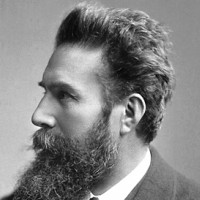 Wilhelm Conrad Röntgen was the first recipient of the Nobel Prize in Physics in 1901, recognized for the discovery of X-rays, a breakthrough that revolutionized medical diagnostics. His pioneering work laid the foundation for the field of radiology.
Wilhelm Conrad Röntgen was the first recipient of the Nobel Prize in Physics in 1901, recognized for the discovery of X-rays, a breakthrough that revolutionized medical diagnostics. His pioneering work laid the foundation for the field of radiology.
 Wilhelm Conrad Röntgen was the first recipient of the Nobel Prize in Physics in 1901, recognized for the discovery of X-rays, a breakthrough that revolutionized medical diagnostics. His pioneering work laid the foundation for the field of radiology.
Wilhelm Conrad Röntgen was the first recipient of the Nobel Prize in Physics in 1901, recognized for the discovery of X-rays, a breakthrough that revolutionized medical diagnostics. His pioneering work laid the foundation for the field of radiology.
7 Erwin Schrödinger
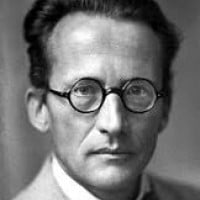 Erwin Schrödinger, a 1933 Nobel Laureate in Physics, is famous for formulating the Schrödinger equation, a fundamental equation in quantum mechanics that describes how the quantum state of a physical system changes over time. His work is a cornerstone of wave mechanics.
Erwin Schrödinger, a 1933 Nobel Laureate in Physics, is famous for formulating the Schrödinger equation, a fundamental equation in quantum mechanics that describes how the quantum state of a physical system changes over time. His work is a cornerstone of wave mechanics.
 Erwin Schrödinger, a 1933 Nobel Laureate in Physics, is famous for formulating the Schrödinger equation, a fundamental equation in quantum mechanics that describes how the quantum state of a physical system changes over time. His work is a cornerstone of wave mechanics.
Erwin Schrödinger, a 1933 Nobel Laureate in Physics, is famous for formulating the Schrödinger equation, a fundamental equation in quantum mechanics that describes how the quantum state of a physical system changes over time. His work is a cornerstone of wave mechanics.
8 Richard Feynman
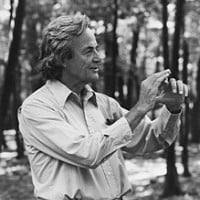 Richard Feynman was awarded the Nobel Prize in Physics in 1965, shared with Julian Schwinger and Sin-Itiro Tomonaga, for their fundamental work in quantum electrodynamics, with deep-ploughing consequences for the physics of elementary particles. He was also known for his ability to communicate complex scientific concepts to the public.
Richard Feynman was awarded the Nobel Prize in Physics in 1965, shared with Julian Schwinger and Sin-Itiro Tomonaga, for their fundamental work in quantum electrodynamics, with deep-ploughing consequences for the physics of elementary particles. He was also known for his ability to communicate complex scientific concepts to the public.
 Richard Feynman was awarded the Nobel Prize in Physics in 1965, shared with Julian Schwinger and Sin-Itiro Tomonaga, for their fundamental work in quantum electrodynamics, with deep-ploughing consequences for the physics of elementary particles. He was also known for his ability to communicate complex scientific concepts to the public.
Richard Feynman was awarded the Nobel Prize in Physics in 1965, shared with Julian Schwinger and Sin-Itiro Tomonaga, for their fundamental work in quantum electrodynamics, with deep-ploughing consequences for the physics of elementary particles. He was also known for his ability to communicate complex scientific concepts to the public.
9 Guglielmo Marconi
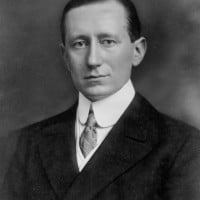 Guglielmo Marconi was awarded the Nobel Prize in Physics in 1909, shared with Karl Ferdinand Braun, for their contributions to the development of wireless telegraphy. Marconi is often credited with the invention of the radio, having built the first successful wireless telegraphy system.
Guglielmo Marconi was awarded the Nobel Prize in Physics in 1909, shared with Karl Ferdinand Braun, for their contributions to the development of wireless telegraphy. Marconi is often credited with the invention of the radio, having built the first successful wireless telegraphy system.
 Guglielmo Marconi was awarded the Nobel Prize in Physics in 1909, shared with Karl Ferdinand Braun, for their contributions to the development of wireless telegraphy. Marconi is often credited with the invention of the radio, having built the first successful wireless telegraphy system.
Guglielmo Marconi was awarded the Nobel Prize in Physics in 1909, shared with Karl Ferdinand Braun, for their contributions to the development of wireless telegraphy. Marconi is often credited with the invention of the radio, having built the first successful wireless telegraphy system.
10 Max Planck
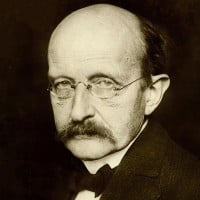 Max Planck, the father of quantum theory, was awarded the Nobel Prize in Physics in 1918 for his discovery of energy quanta. This work led to the development of quantum mechanics, a fundamental theory in physics that provides a description of the physical properties of nature at the scale of atoms and subatomic particles.
Max Planck, the father of quantum theory, was awarded the Nobel Prize in Physics in 1918 for his discovery of energy quanta. This work led to the development of quantum mechanics, a fundamental theory in physics that provides a description of the physical properties of nature at the scale of atoms and subatomic particles.
 Max Planck, the father of quantum theory, was awarded the Nobel Prize in Physics in 1918 for his discovery of energy quanta. This work led to the development of quantum mechanics, a fundamental theory in physics that provides a description of the physical properties of nature at the scale of atoms and subatomic particles.
Max Planck, the father of quantum theory, was awarded the Nobel Prize in Physics in 1918 for his discovery of energy quanta. This work led to the development of quantum mechanics, a fundamental theory in physics that provides a description of the physical properties of nature at the scale of atoms and subatomic particles.The Contenders
11 Peter Higgs
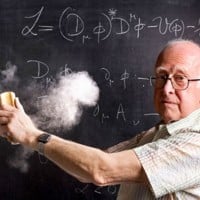 Peter Higgs was awarded the Nobel Prize in Physics in 2013, alongside François Englert, for the theoretical discovery of a mechanism that contributes to our understanding of the origin of mass of subatomic particles, which was confirmed by the discovery of the predicted fundamental particle, the Higgs boson, by the ATLAS and CMS experiments at CERN's Large Hadron Collider.
Peter Higgs was awarded the Nobel Prize in Physics in 2013, alongside François Englert, for the theoretical discovery of a mechanism that contributes to our understanding of the origin of mass of subatomic particles, which was confirmed by the discovery of the predicted fundamental particle, the Higgs boson, by the ATLAS and CMS experiments at CERN's Large Hadron Collider.
 Peter Higgs was awarded the Nobel Prize in Physics in 2013, alongside François Englert, for the theoretical discovery of a mechanism that contributes to our understanding of the origin of mass of subatomic particles, which was confirmed by the discovery of the predicted fundamental particle, the Higgs boson, by the ATLAS and CMS experiments at CERN's Large Hadron Collider.
Peter Higgs was awarded the Nobel Prize in Physics in 2013, alongside François Englert, for the theoretical discovery of a mechanism that contributes to our understanding of the origin of mass of subatomic particles, which was confirmed by the discovery of the predicted fundamental particle, the Higgs boson, by the ATLAS and CMS experiments at CERN's Large Hadron Collider.
12 Werner Heisenberg
 Werner Heisenberg was honored with the Nobel Prize in Physics in 1932 for the creation of quantum mechanics, the application of which has led to the discovery of the allotropic forms of hydrogen. His uncertainty principle is one of the key results of his work, providing a fundamental limit to what can be known simultaneously about the position and momentum of a particle.
Werner Heisenberg was honored with the Nobel Prize in Physics in 1932 for the creation of quantum mechanics, the application of which has led to the discovery of the allotropic forms of hydrogen. His uncertainty principle is one of the key results of his work, providing a fundamental limit to what can be known simultaneously about the position and momentum of a particle.
 Werner Heisenberg was honored with the Nobel Prize in Physics in 1932 for the creation of quantum mechanics, the application of which has led to the discovery of the allotropic forms of hydrogen. His uncertainty principle is one of the key results of his work, providing a fundamental limit to what can be known simultaneously about the position and momentum of a particle.
Werner Heisenberg was honored with the Nobel Prize in Physics in 1932 for the creation of quantum mechanics, the application of which has led to the discovery of the allotropic forms of hydrogen. His uncertainty principle is one of the key results of his work, providing a fundamental limit to what can be known simultaneously about the position and momentum of a particle.
13 Ernst Ruska
Ernst Ruska was awarded the Nobel Prize in Physics in 1986 for his fundamental work in electron optics, and for the design of the first electron microscope. His contributions significantly advanced the field of microscopy, allowing scientists to observe structures at a scale previously thought impossible.
14 John Bardeen
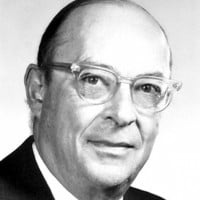 John Bardeen is distinguished for being awarded the Nobel Prize in Physics twice: first in 1956, along with William Shockley and Walter Brattain, for the invention of the transistor, and again in 1972, with Leon Cooper and Robert Schrieffer, for the development of the theory of superconductivity, known as the BCS theory. His work has had a profound impact on electronics and materials science.
John Bardeen is distinguished for being awarded the Nobel Prize in Physics twice: first in 1956, along with William Shockley and Walter Brattain, for the invention of the transistor, and again in 1972, with Leon Cooper and Robert Schrieffer, for the development of the theory of superconductivity, known as the BCS theory. His work has had a profound impact on electronics and materials science.
 John Bardeen is distinguished for being awarded the Nobel Prize in Physics twice: first in 1956, along with William Shockley and Walter Brattain, for the invention of the transistor, and again in 1972, with Leon Cooper and Robert Schrieffer, for the development of the theory of superconductivity, known as the BCS theory. His work has had a profound impact on electronics and materials science.
John Bardeen is distinguished for being awarded the Nobel Prize in Physics twice: first in 1956, along with William Shockley and Walter Brattain, for the invention of the transistor, and again in 1972, with Leon Cooper and Robert Schrieffer, for the development of the theory of superconductivity, known as the BCS theory. His work has had a profound impact on electronics and materials science.
15 James Chadwick
16 J. J. Thomson
BAdd New Item